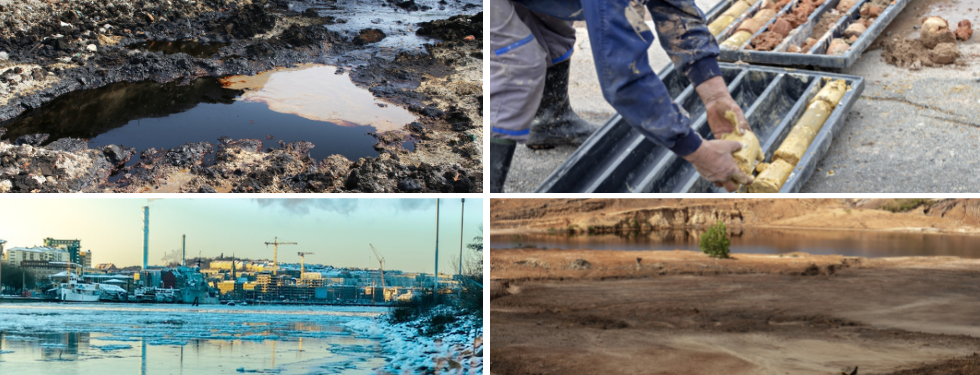Remediation and stabilization of contaminated soils

The sustainable management of polluted soils and groundwater is one of the actual most widespread environmental issues. Pollution scenarios characterised by different contaminants, often reported in combination, as heavy metals, inorganic and organic compounds (i.e. pharmaceutically active compounds (PAHs) and contaminants of emerging concern (CECs) make the remediation particularly challenging.
On one hand, soil contamination due to the presence of heavy metals is efficiently treated with immobilization-based technologies, particularly in the cement-soils systems. On the other hand, the growth of nanotechnology research opened the way to new opportunities for the use of engineered nanomaterials aimed at rapid and effective water remediation due to the high selectivity, adsorption capacity, low toxicity and the possibility to couple remediation with the recovery and recycling of critical metals.
The research activities develop on diverse topics:
- Soils: materials under investigation include brownfield soils contaminated by heavy metals and phosphogypsum (a by-product generated from fertilizers production). The main goal is understanding the mechanisms controlling pollutants immobilization in solidified/stabilized soil systems using different binders (Portland cement and alternative binders).
- Water: The research focuses on the synthesis and characterisation of different nanocomposites, ensuring suitable colloidal stability in water and good magnetic properties.
The main goals are:
- to define a reliable protocol to synthesise nanocomposites, and to perform deep structural, bulk and surface characterization
- to test the binding properties at the laboratory scale to deeply understand the potentiality and efficiency of the material
- to develop a sustainable and efficient material to be used in complex polluted scenarios
Professors coordinating and developing projects related to this research pathway: Matteo Ardit, Gilberto Artioli, Giorgio Cassiani, Maria Chiara Dalconi, Luca Valentini





